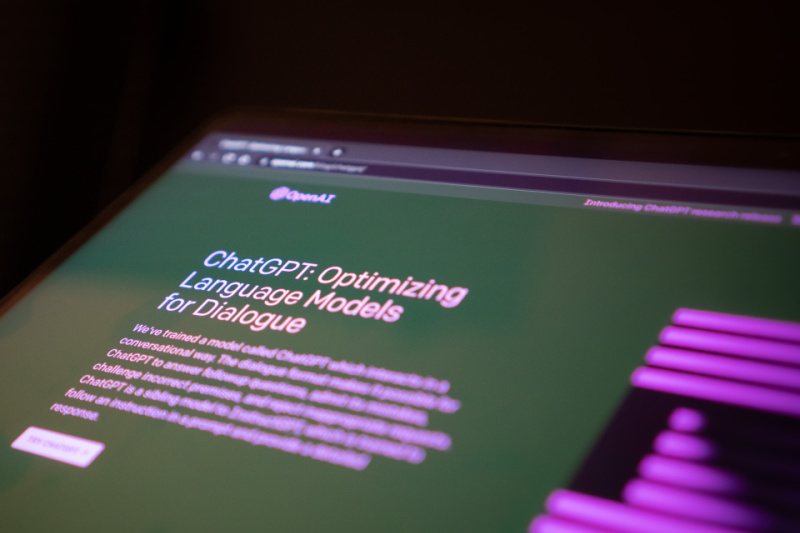School Librarians Should Approach ChatGPT with Caution | Soapbox
Ignoring ChatGPT is not the answer, but neither is relying on the software to perform the tasks and duties of a trained school librarian.

In your recent article “School Librarians Explore the Possibilities of ChatGPT” by Kara Yorio, librarians explore the potential uses of the AI-software as an aid to reader’s advisory. At first, I was curious about the potential uses for this new technology. As curators and often pioneers of emerging tech, I think it is important that we consider all potential benefits and pitfalls to new and emerging trends in technology. It makes perfect sense to become early adopters of groundbreaking tech to establish our relevance as information professionals, but in this particular instance, caution is warranted when using artificial intelligence to perform the tasks and duties of a trained school librarian.
Ignoring ChatGPT is not the answer, but neither is relying on the software to perform the tasks that require time, effort, and skill. The script for ChatGPT stopped updating in 2021, which means that its base of knowledge is constrained.
When I asked it to compile a list of graphic novels for middle schoolers, I got the same few popular titles, despite rephrasing the prompts. The same few titles were regurgitated back to me, and some of the reasoning for why a title was selected was misleading. Our current databases, even Goodreads and Amazon, are doing better at recommending titles. Each month, more diverse titles are being published than even three years ago. By design, these critically important books will be omitted from recommendations until the software is updated.
And do librarians, especially in our current political climate, really want to give administrators and the public further excuse to eliminate school librarian positions? A computer can pick books for children, books that we approve from a list we selected, so why would we need a school librarian, anyway? You see where I am going with this.
Furthermore, writers, artists, and musicians are worried about the effects of AI on their work. As champions of intellectual freedom, of books and authors and the written word, why should we support the use of technology that cheapens the work of creatives?
Do librarians, especially in our current political climate, really want to give administrators and the public further excuse to eliminate school librarian positions?
The publishing industry is already experiencing backlash from using AI. Tor Books claims it had no knowledge that an image used to create the cover for Chirstopher Paolini’s new book set to release in May was AI generated. Yet, they are moving forward with the design despite concerns raised by authors like Xiran Jay Zhao.
Zhao tweeted, “My concern is that if community pushback isn't enough to get Tor to change this cover, all publishers will see it as a go-ahead to use AI art on covers. Paolini isn't a midlister whose career hinges on this release. He can take the hit of delaying the book to make things right.” This sets a concerning precedent for creatives, who have a hard enough time being compensated fairly for their work.
This is not to say that there will never be a time that librarians use AI technology and software, but for now, approach with caution. Continue to use your professional expertise to recommend diverse books that serve as windows and mirrors. Talk about the effects of AI tech with your staff and students, what AI means for potential plagiarism.
It’s not going away, but we can use the technology thoughtfully, and in a way that preserves creativity and critical thinking for ourselves and others.
Photo by Jonathan Kemper on Unsplash
Cidney Mayes is a teacher librarian at Memorial Middle School Library, South Portland, ME.
RELATED
The job outlook in 2030: Librarians will be in demand
The job outlook in 2030: Librarians will be in demand
ALREADY A SUBSCRIBER? LOG IN
We are currently offering this content for free. Sign up now to activate your personal profile, where you can save articles for future viewing






Add Comment :-
Be the first reader to comment.
Comment Policy:
Comment should not be empty !!!